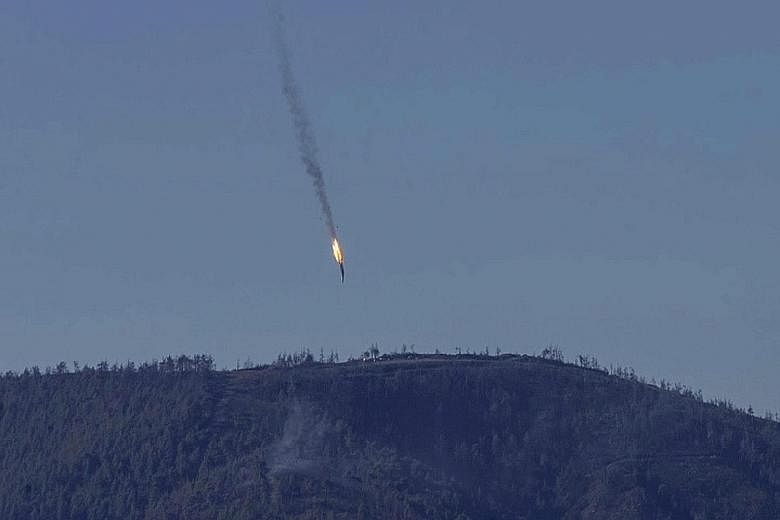The dangerous skies over Syria have now earned their reputation. The Turkish foreign ministry has confirmed that its forces had shot down a fighter aircraft near the Turkish border with Syria. The Russian foreign ministry confirmed soon afterwards that it has lost an SU-24 over Syria.
Meanwhile, at a meeting of Nato's North Atlantic Council in Brussels, diplomats condemned Russian incursions but said Turkey should have escorted the Russian warplane from its airspace. "There are other ways of dealing with these kinds of incidents," one unnamed diplomat told Reuters.
This comes at a time, following the Paris attacks, when the United States and its Western allies had been reaching a tentative agreement with Russia to solve the previous impasse over a possible transition of power in Syria.
Turkey and other Sunni Middle Eastern states are ranged against the Assad regime and are unhappy at the prospect of a deal that would leave him in power - even if only on a temporary basis. Iran and Russia have been keen to see their Syrian ally remain in power, although Russia has been coming around to the idea of a transition but has steadfastly argued that it is imperative to defeat Islamic State in Iraq and Syria (ISIS) militarily first.
After the Paris attacks, France was swift to act against ISIS, and Nato has appeared to accept that the first priority is to act against the terrorist group, leaving the Assad question for the time being. Will that common ground be lost over the downing of the SU-24?
It is important to keep in mind that while shooting another country's plane down could be seen as an act of war, it has rarely precipitated a larger conflict.
The last time a Nato member shot down a, then Soviet, fighter aircraft (MiG-15) was in 1953, destroyed by the US during the height of the early Cold War tension and towards the stalemate that would halt the Korean War.
Many Nato fighter aircraft were shot down during the 1950s - though this tailed off as the Cold War became less war and more hot air. Where does this leave Russia's relationship with Turkey and Nato? The Russian government has been quick to avoid calling this incident a Turkish act of aggression. The Turkish government meanwhile stated that its aircraft had warned the Russian SU-24 10 times before taking action.
No longer is there a Nato-Russia Council where Russia could have become more operationally engaged to avoid such events. However, Nato and Russia established a hotline in May which will be useful in making sure that Russian and Nato heads remain cool as we discover what happened and more about the state of the Russian pilots.
- The writer is Professor of International Security, Director of Centre for War and Technology, University of Bath.
- A longer version of this article first appeared in The Conversation (http://theconversation.com), a website which carries analyses by academics and researchers in Australia, the US and Britain.

